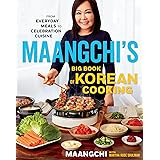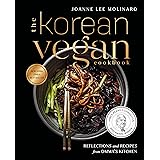Embarking on a new dietary journey can often feel like navigating an unfamiliar landscape, full of exciting possibilities but also potential detours. Perhaps you’ve heard the buzz about the Mediterranean diet – lauded for its incredible health benefits, from supporting heart health to boosting longevity. Yet, knowing where to begin and which ingredients truly embody this vibrant way of eating can sometimes feel overwhelming. Just as Dr. Anna beautifully explains in the video above, mastering your health with the Mediterranean diet starts with understanding its foundational ingredients. She shares her top 12 essential foods, and it’s truly the perfect starting point for any beginner.
My own journey into Mediterranean cooking began with a simple desire for more flavorful, nourishing meals without sacrificing simplicity. I quickly learned that the secret lies not in exotic superfoods, but in a pantry stocked with a few key, versatile ingredients. These aren’t just foods; they are the building blocks of a lifestyle that prioritizes fresh, whole, and delicious components. Let’s delve deeper into these Mediterranean diet staples, exploring their unique contributions to your health and how you can seamlessly incorporate them into your daily cooking.
The Golden Elixir: Olive Oil & Olives
At the very heart of the Mediterranean diet, much like the sun warming the ancient shores, lies olive oil. Dr. Anna rightly places it at number one, and its prominence is well-deserved. For centuries, across cultures bordering the Mediterranean Sea, olive oil has been more than just a cooking fat; it’s a way of life, cherished for its health benefits and culinary versatility. This liquid gold is primarily composed of monounsaturated fatty acids, particularly oleic acid, which are known powerhouses for cardiovascular health. These healthy fats help reduce bad cholesterol levels and can lower your risk of heart disease, acting like a smooth current guiding your blood vessels.
Beyond its fat profile, olive oil is a treasure trove of potent phytonutrients, including polyphenols and vitamin E, which bestow impressive anti-inflammatory and antioxidant properties. Think of these compounds as tiny, dedicated guardians, constantly working to protect your cells from damage and chronic disease. There’s a fascinating world of olive oil varieties out there, each offering a distinct flavor profile, much like different wine regions produce unique vintages. From peppery and robust to mild and buttery, exploring these nuances can elevate a simple salad or a humble piece of bread into a gourmet experience. Incorporating it into your diet is simple: drizzle it generously over salads, use it for sautéing vegetables, or even dip crusty bread into it for a truly authentic taste of the Mediterranean.
Ocean’s Bounty: Sardines & Anchovies
Venturing into the sea, we discover two small, yet mighty, fish that pack a nutritional punch: sardines and anchovies. Dr. Anna highlights these oily little wonders for their exceptional omega-3 fatty acid content. These essential fatty acids, specifically EPA and DHA, are crucial for brain health, reducing inflammation throughout the body, and maintaining a healthy heart. Imagine them as tiny ships sailing through your bloodstream, delivering vital cargo to every cell. While their robust flavor might initially deter some, especially beginners, their versatility in Mediterranean cuisine is astounding.
The beauty of sardines and anchovies, particularly their canned varieties, lies in their convenience and accessibility. They offer a quick and healthy source of protein and fat, ready to be deployed at a moment’s notice. You can mash sardines onto whole-grain toast, toss them into salads for a savory kick, or even crumble anchovies into pasta sauces or onto pizza to add a profound depth of umami flavor without an overly “fishy” taste. For many, integrating these canned fish into their pantry becomes a lifesaver on busy days, ensuring a nutrient-dense meal is always within reach.
Sun-Kissed Goodness: Tomatoes
Few foods capture the essence of Mediterranean sunshine quite like the tomato. An undeniable staple in Italian, Spanish, and Greek cuisines, tomatoes are celebrated for their vibrant flavor and incredible versatility. Whether enjoyed raw in a refreshing Caprese salad with fresh mozzarella and basil, or cooked down into a rich, aromatic pasta sauce, tomatoes deliver a unique sweet and tangy profile. They come in a dazzling array of varieties, from tiny cherry tomatoes bursting with sweetness to hefty heirloom tomatoes, each with its own character. As Dr. Anna recounts, a fresh, ripe tomato can offer an explosion of flavor unlike anything else.
Beyond their delicious taste, tomatoes are a nutritional powerhouse, rich in antioxidants, particularly lycopene. This carotenoid is responsible for the tomato’s red hue and is celebrated for its potential role in protecting against certain cancers and heart disease. Interestingly, lycopene becomes even more bioavailable when tomatoes are cooked, making sauces and stews a fantastic way to maximize their health benefits. Moreover, the ability to can or jar tomato sauces means you can savor the taste of summer throughout the colder months, ensuring this vital ingredient remains a year-round fixture in your Mediterranean diet.
Flavorful Foundations: Garlic & Fresh Herbs
Imagine building a house without a strong foundation; it simply wouldn’t stand. In Mediterranean cooking, garlic and fresh herbs serve as those indispensable foundations, elevating simple ingredients into culinary masterpieces. Garlic, an ancient food used for millennia across countless cultures, is not only prized for its pungent, aromatic qualities but also for its profound health benefits. It’s brimming with compounds like allicin, which contribute to its well-documented anti-inflammatory, antioxidant, and even anti-cancer properties. Furthermore, garlic has long been recognized for its positive impact on the digestive and immune systems, acting as a natural defender for your body.
Garlic’s versatility is truly unmatched; it can be minced into sauces, sautéed with vegetables, roasted to a sweet, mellow paste for spreading on toast, or used to infuse oils. Likewise, fresh herbs such as basil, rosemary, thyme, and oregano are more than just garnishes. They are concentrated bursts of flavor and potent sources of antioxidants and anti-inflammatory compounds. Incorporating fresh herbs allows you to add immense depth and brightness to dishes without relying on extra calories or sodium, making them an invaluable tool for healthy cooking. They are the fragrant whispers that tie together many Mediterranean dishes, ensuring every bite is fresh and exciting.
Hearty & Healthy: Garbanzo Beans (Chickpeas) & Ancient Grains
The Mediterranean diet doesn’t shy away from satisfying, substantial foods, and chickpeas along with ancient grains are prime examples of this. Chickpeas, also known as garbanzo beans, are nothing short of a nutritional marvel. As Dr. Anna points out, a single cup of chickpeas delivers an impressive 10 grams of fiber, putting you nearly halfway towards the recommended daily intake of 26-30 grams for adults. This fiber content is crucial for digestive health, blood sugar regulation, and promoting a feeling of fullness, which can aid in weight management. Beyond fiber, chickpeas are an excellent source of plant-based protein, making them a fantastic component for vegetarian and vegan meals.
Their versatility knows no bounds: blend them into creamy hummus, roast them until crispy for a savory snack, toss them into vibrant salads, or simmer them in hearty stews. Similarly, ancient grains are the bedrock of complex carbohydrates in the Mediterranean diet. Unlike refined grains, varieties like farro, spelt, emmer, einkorn, barley, oats, freekeh, and bulgur retain their bran and germ, meaning they are packed with fiber, protein, vitamins, and minerals. These grains provide sustained energy, regulate blood sugar, and contribute significantly to overall digestive health. They can be enjoyed as a side dish, incorporated into grain bowls, or even used as a base for salads, offering a chewy texture and nutty flavor that grounds any meal.
Cooling & Creamy: Cucumber & Greek Yogurt
Contrast and balance are key elements in Mediterranean cuisine, and cucumber and Greek yogurt exemplify this perfectly. Cucumbers, with their high water content, offer a wonderfully refreshing crunch that makes them ideal for raw consumption. They are the epitome of an “easy-to-eat” vegetable, effortlessly enhancing salads like the classic Greek salad with tomatoes, red onion, and feta, or serving as a crisp vehicle for dips. Their natural cooling properties make them a perfect counterpoint to richer flavors, and a beloved ingredient in cooling yogurt-based dips like tzatziki. Adding cucumber to your meals is a simple way to boost hydration and add a satisfying texture without significant calories.
Greek yogurt, a creamy, tangy delight, stands out as an exception in a diet that generally de-emphasizes large amounts of dairy. Its inclusion is primarily due to its exceptional nutritional profile and gut-friendly benefits. Loaded with probiotics, Greek yogurt actively supports a healthy digestive system by fostering beneficial gut bacteria. Furthermore, it boasts a significantly higher protein content than regular yogurt, making it an excellent food for satiety and muscle maintenance. Greek yogurt isn’t just for breakfast parfaits; its thick texture makes it a fantastic base for savory dips, marinades, or even as a healthier sour cream alternative, showcasing its remarkable versatility in Mediterranean cooking.
The Royal Vegetable & The Zesty Finisher: Eggplant & Lemon
Rounding out our list of Mediterranean essentials are two ingredients that, while often playing supporting roles, are absolutely vital for depth and brightness: eggplant and lemon. Eggplant, often playfully dubbed “the poor person’s steak” in some Italian traditions, is a textural marvel that readily absorbs flavors and lends itself to a myriad of cooking methods. Whether grilled until smoky, sautéed to a tender consistency, roasted for a rich dip like baba ganoush, or incorporated into hearty stews, eggplant adds a satisfying substance to vegetarian dishes. Its ability to take on the characteristics of other ingredients makes it an invaluable ally in creating diverse and flavorful meals without heavy meats.
Finally, the humble lemon, an indispensable citrus fruit, acts as the ultimate brightener and finisher in Mediterranean cooking. Its acidic component is a culinary secret weapon, capable of “lifting” and enhancing the flavors of almost any dish, much like a bright spotlight illuminates a stage. A squeeze of fresh lemon juice can transform roasted vegetables, grilled fish, or a simple salad dressing, adding a vibrant zing. But its uses extend beyond savory applications; lemons are crucial for many Mediterranean desserts, like the refreshing Granita Siciliana, a zesty, icy treat. Having lemons on hand ensures you can always add that final, perfect touch of brightness, making your Mediterranean meals truly sing.











